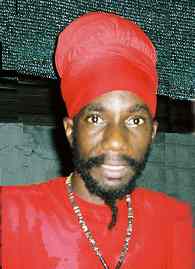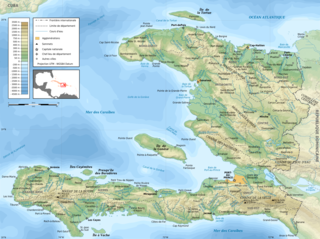 W
WReparations for slavery is the application of the concept of reparations to victims of slavery and/or their descendants. There are concepts for reparations in legal philosophy and reparations in transitional justice. Reparations can take numerous forms, including: affirmative action, individual monetary payments, settlements, scholarships, waiving of fees, and systemic initiatives to offset injustices, land-based compensation related to independence, apologies and acknowledgements of the injustices, token measures, such as naming a building after someone, or the removal of monuments and renaming of streets that honor slave owners and defenders of slavery.
 W
WMoshood Kashimawo Olawale Abiola, also known as M. K. O. Abiola GCFR was a Nigerian businessman, publisher, and politician. He was the Aare Ona Kankafo XIV of Yorubaland and an aristocrat of the Egba clan.
 W
WAetna Inc. is an American managed health care company that sells traditional and consumer directed health care insurance and related services, such as medical, pharmaceutical, dental, behavioral health, long-term care, and disability plans, primarily through employer-paid insurance and benefit programs, and through Medicare. Since November 28, 2018, the company has been a subsidiary of CVS Health.
 W
WAmiri Baraka, previously known as LeRoi Jones and Imamu Amear Baraka, was an American writer of poetry, drama, fiction, essays and music criticism. He was the author of numerous books of poetry and taught at several universities, including the University at Buffalo and Stony Brook University. He received the PEN/Beyond Margins Award in 2008 for Tales of the Out and the Gone.
 W
WThe Commission to Study and Develop Reparation Proposals for African-Americans Act, is an Act of Congress in the United States introduced in 1989 by Rep. John Conyers. The act aims to create a commission to examine the merits of introducing reparations to African-Americans for US slavery. The current iteration of the act is sponsored by Rep. Sheila Jackson Lee.
 W
WAfter the Haitians gained independence from French colonial rule in the Haitian Revolution of 1804, the French returned in 1825 and demanded that the newly independent country pay the French government and French slaveholders the modern equivalent of US$21 billion for claiming slaveowner's property and the land that they had turned into profitable sugar and coffee producing plantations. This independence debt was financed by French banks and the American Citibank, and finally paid off in 1947.
 W
WThe Haiti indemnity controversy involves an 1825 agreement between Haiti and France that included France demanding a 150 million franc indemnity to be paid by Haiti in claims over property – including Haitian slaves – that was lost through the Haitian Revolution in return for diplomatic recognition. The payment was later reduced to 90 million francs in 1838, comparable to US$21 billion as of 2004.
 W
WDavid Joel Horowitz is an American conservative writer. He is a founder and president of the right-wing David Horowitz Freedom Center (DHFC); editor of the Center's far-right website FrontPage Magazine; and director of Discover the Networks, a website that tracks individuals and groups on the political Left. Horowitz also founded the organization Students for Academic Freedom.
 W
WLearning from the Germans: Race and the Memory of Evil is a 2019 non-fiction book by Susan Neiman, published by Farrar, Straus and Giroux in the United States and by Allen Lane in the United Kingdom. The author argues that German society has largely accepted responsibility for and learned from actions done by the country in the past, particularly in World War II, while the United States had not done the same, particularly for Jim Crow violations.
 W
WSaul Levmore is the William B. Graham Distinguished Service Professor of Law, and former Dean of the University of Chicago Law School.
 W
WThe National Ex-Slave Mutual Relief, Bounty and Pension Association (MRB&PA) was an organization founded for the purpose of obtaining pensions for former slaves from the Federal government as compensation and reparations for their unpaid labor and suffering. Founded in 1896 and chartered in 1898 in Nashville, Tennessee, the organization was founded by former slaves Callie House and Isaiah H. Dickerson. According to historian Mary Frances Berry, the organization was "the first mass reparations movement led by African Americans."
 W
WThe New Black Panther Party (NBPP) is an American black nationalist organization founded in Dallas, Texas, in 1989. Despite its name, the NBPP is not an official successor to the Black Panther Party. Members of the original Black Panther Party have insisted that the newer party is not legitimate and "there is no new Black Panther Party".
 W
WPrinceton Theological Seminary, officially The Theological Seminary of the Presbyterian Church, is a private school of theology in Princeton, New Jersey. Founded in 1812 under the auspices of Archibald Alexander, the General Assembly of the Presbyterian Church (USA), and the College of New Jersey, it is the second-oldest seminary in the United States. It is also the largest of ten seminaries associated with the Presbyterian Church.
 W
WThe Republic of New Afrika (RNA), founded in 1968 as the Republic of New Africa (RNA), is a black nationalist organization and black separatist movement in the United States popularized by black militant groups. The larger New Afrika movement in particular has three goals:Creation of an independent black-majority country situated in the Southeastern United States, in the heart of an area of black-majority population. Payment by the federal government of several billion dollars in reparations to African-American descendants of slaves for the damages inflicted on Africans and their descendants by chattel enslavement, Jim Crow laws, and modern-day forms of racism. A referendum of all African Americans to determine their desires for citizenship; movement leaders say their ancestors were not offered a choice in this matter after emancipation in 1865 following the American Civil War.
 W
WRobin Rue Simmons is an American former politician and advocate for reparations for African Americans.
 W
WMiguel Orlando Collins, known by his stage name Sizzla Kalonji or Sizzla, is a Jamaican reggae recording artist. He is one of the most commercially and critically successful contemporary reggae artists and is noted for his high number of releases. As of 2018 he has released 56 solo albums.
 W
WSlavery in Haiti started after the arrival of Christopher Columbus on the island in 1492 with the European colonists that followed from Portugal, Spain and France. The practice was devastating to the native population. Following the indigenous Tainos' near decimation from forced labor, disease and war, the Spanish, under advisement of the Catholic priest Bartolomé de las Casas and with the blessing of the Catholic church, began engaging in earnest in the 1600s in the kidnapping and forced labor of enslaved Africans. During the French colonial period, beginning in 1625, the economy of Haiti was based on slavery, and the practice there was regarded as the most brutal in the world. The Haitian Revolution of 1804, the only successful slave revolt in human history, precipitated the end of slavery not only in Saint-Domingue, but in all French colonies. However, this revolt has only merited a marginal role in the histories of Portuguese and Spanish America. Moreover, it is to this rebellion in Haiti that the struggle for independence in Latin American can be traced to. However, several Haitian leaders following the revolution employed forced labor, believing a plantation-style economy was the only way for Haiti to succeed, and building fortifications to safeguard against attack by the French. During the U.S. occupation between 1915 and 1934, the U.S. military forced Haitians to work building roads for defense against Haitian resistance fighters.
 W
WThe Society of the Sacred Heart, also known as the Religious of the Sacred Heart of Jesus is a religious congregation for women of the Catholic Church established in France by St. Madeleine Sophie Barat in 1800.
 W
WVirginia Theological Seminary (VTS), formally called the Protestant Episcopal Theological Seminary in Virginia, is the largest and second oldest accredited Episcopal seminary in the United States.
 W
WRaymond Arnold Winbush aka Tikari Bioko is an American-African scholar and activist known for his systems-thinking approaches to understanding the impact of racism/white supremacy on the global African community. His writings, consultations, and research have been instrumental in understanding developmental stages in Black males, public policy and its connection to compensatory justice, relationships between Black males and females, infusion of African studies into school curricula, and the impact of hip hop culture on the contemporary American landscape. He is currently Research Professor and Director of the Institute for Urban Research at Morgan State University in Baltimore, Maryland.
 W
WArmand Zunder is a Surinamese economist. As chairman of the Committee Reparations Slavery Past he was part of a reparations for slavery effort directed at the Netherlands.